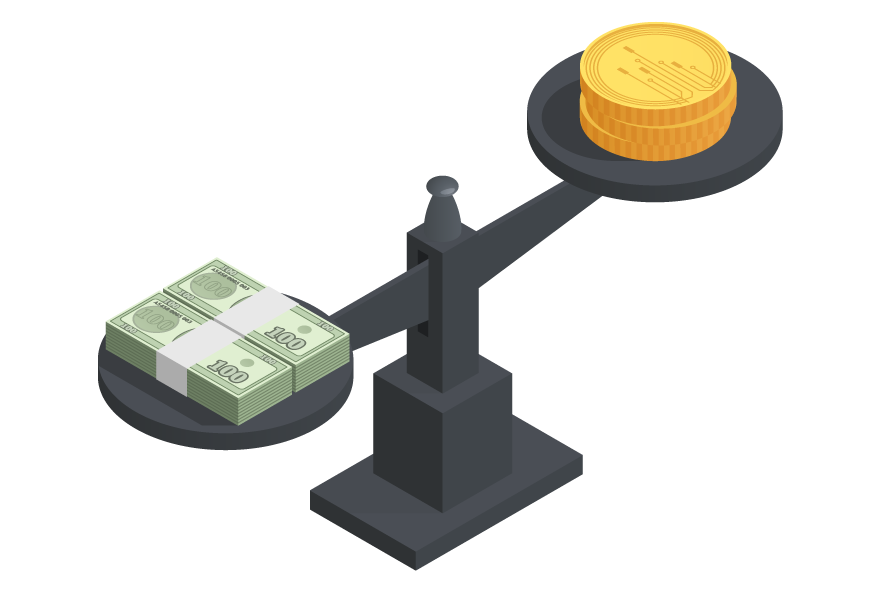
The number of Bitcoin profit scams is on the rise. You may see a giveaway scam that promises to double the amount you send. You may even see it promoted by some of your favorite influencers on social media, but only because their accounts were hacked. At any rate, you don’t want this to happen to you. Fortunately, it’s fairly easy to check whether a certain Bitcoin address has been previously used by scam artists in fake Bitcoin contests. What’s more, though, is that it’s pretty easy to report a Bitcoin address that is running a scam. The key takeaway when it comes to Bitcoins scams, though, is protecting yourself. These tips can help.
Begin By Checking the Bitcoin Abuse Database

Before you ever send your Bitcoin to a given address, Bitcoin Abuse is one place you want to check. They record addresses as having been associated with Bitcoin profit scams, and it’s incredibly popular. With this site, you have the ability to look up an address, report an address, or monitor the reports coming in by others. If you do try to look up an address, and it has been previously reported as a scam, the site will help you uncover how many times it has been reported, the most recent report’s time and date, and the number of transactions done through the address. You’ll also see the total Bitcoin it has received. The site takes things one step further, though. It offers a link to Blockchain.info so you can actually track the transactions to that address. To further help you decide, you’ll see every single report. Overall, the site is incredibly helpful. You can find statistics on the overall numbers of Bitcoin scams that have been reported on a worldwide basis.
This isn’t the only site helping Bitcoin users uncover fraud. Scam Alert is another option. It was created by the Whale Alert company, and their goal is to make Bitcoin a little safer for everyone. Any user in the Bitcoin network is encouraged to report scams they see as well as fraudulent websites that involve Bitcoin or any other cryptocurrency. You can also report any thefts you’ve experienced. Just like Bitcoin Abuse, you’ll put in the address that you’re concerned about. If it has been previously reported, you’ll see a message that confirms the scam. You can also, should you choose to do so, view the report on the address. It lists all of the descriptions that have been reported, associated addresses or websites, the total number of times it has been reported to the site, and the earnings of that address. The site also has a learning database that helps users understand the different kinds of Bitcoin profit scams that are out there, and plenty of prevention address.
Know What You’re Up Against

It can be helpful to know more about the type of Bitcoin profit scams you may face. Malware downloads are one. These scammers use bait to get you to download something that will mess up your computer. They promise to give you Bitcoin for a survey or something, then when you download it, you’ll get an app full of malware. You can put an end to this by only using HTTPS sites. In some cases, you may initially get the prompt to download something because of a Bitcoin scam email. No matter how you get the prompt, though, it’s important that you don’t download anything.
Phising is another common Bitcoin scam. In these situations, a site entices users to enter their Bitcoin key to make sure it is legitimate. Once entered, the key will be stolen, and the scammer can spend from the owner’s wallet. In some of these cases, you may get a Bitcoin scam email that initiates the process. This kind of scam is a fairly old one, and whether it starts with a Bitcoin scam email or something else entirely, it’s important to know when people are just looking for information.
Bitcoin flipping scams are common as well. The idea is that they will exchange your Bitcoin for money after you pay the start-up fee. They always have wild promises like doubling your investment instantly. Naturally, the moment you transfer your Bitcoin, it is immediately stolen. They’re not always easy to spot, though. The Bitcoin trader scam actually sucked a lot of people in over the last year. The Bitcoin trader scam works like this. They claim to be trading software for a Bitcoin exchange. The idea is that you can trade cryptocurrencies in automated and manual mode, and there have been lots of similar scams over the past few years. While this one is literally called the “Bitcoin Trader” scam, Bitcoin Superstar, Bitcoin Era, and Bitcoin Evolution all ran similar scams over the past few years. The site looks legitimate, and it even says registration has to be closed soon, but it never actually seems to close. The Bitcoin trader scam works because people want a return on their investments, so they promise you that you can earn $1 million in just a few months of trading. You create an account, drop funds into a trading account, then you get a message that your funds have been deposited, but it can take some time to reflect that on your account balance. At that point, your Bitcoin is gone, and you won’t see it again. The Bitcoin trader scam has been around for some time, and it’s not likely to go away in the near future.
Bitcoin pyramid schemes are out there too. They’re a little tougher to recognise, but the scammers still make quite a bit of money with them. It relies on investment programs. You make a low level investment, then that is multiplied by signing up additional members through referral links. Eventually, thousands join, and the original scammer walks away. The pyramid collapses, and thousands have lost money.
Stop Using Social Media To Guide Transactions!

The single best thing you can do is stop using social media to help with Bitcoin transactions. Don’t talk about your Bitcoin on social media, and avoid any URLs that are associated with profiles. They could have already been hacked or be full of malware. Don’t trust any social media claims, and never do direct business over social media.
Be Aware of Bitcoin Scams

Whether it comes from a Bitcoin scam email, a social media influencer, or something else entirely, the single best thing you can do is avoid Bitcoin scams and report them if they happen to you!